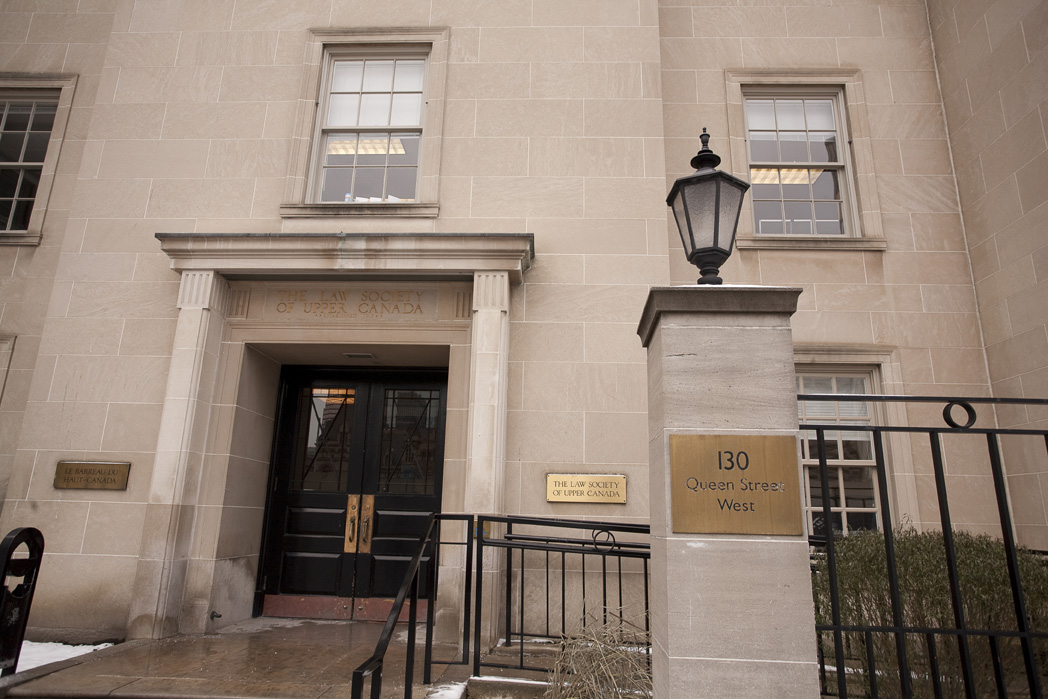
A Toronto area real estate lawyer has lost his bid to dismiss a Law Society of Upper Canada disciplinary panel finding of knowingly assisting in fraud but won’t be disbarred.
 While the Ontario Divisional Court said no to Paul Abbott’s appeal to wipe out any penalty, it also dismissed an LSUC cross-appeal of what was a reduced punishment in the real estate fraud case.
While the Ontario Divisional Court said no to Paul Abbott’s appeal to wipe out any penalty, it also dismissed an LSUC cross-appeal of what was a reduced punishment in the real estate fraud case.
A tribunal panel gave Abbott a two-year licence suspension, despite the gravity of the trangression, because of inordinate delays by the LSUC in its investigation against the lawyer. The standard penalty for knowing assistance in real estate fraud is revocation of a lawyer’s licence to practise.
In Law Society of Upper Canada v. Abbott, Justice Harriet Sachs, with justices Julie Thorburn and Brian Abrams agreeing, upheld an LSUC Appeal Division penalty of a two-year suspension.
“In deciding to impose the penalty of a two-year suspension, rather than revocation, the Appeal Division took into account the inordinate and unacceptable delay that had occurred in this case,” Sachs wrote.
The ruling noted Abbott held no responsibility for the delays, had been co-operative throughout the seven-year investigation against him, and, save a four-month period when the eight real estate transactions in question occurred, Abbott practised law without incident while also expressing remorse.
“In my view, the reasons given adequately support the Appeal Division’s decision on penalty and display a line of analysis that could reasonably lead it from the evidence that was before it to its conclusion,” wrote Sachs. “In other words, it was a reasonable decision.”
Abbott’s counsel, James Morton, of Morton Karrass LLP, says while his client still believes the court has erred in finding he knowingly assisted in fraud, Abbott is pleased to be able to retain his licence to practise after serving his suspension.
“It certainly is a partial vindication; the incredible delay was so extraordinary as to take this out of the ordinary course,” says Morton.
“I was surprised that this matter even went to application simply because it had taken so long. At some point you have to come to the conclusion they’re [the LSUC] just not interested at all and certainly they didn’t seem interested in this matter at all for years and years.
“It was simply irresponsible for the law society to let this matter drag on the way they did if indeed there was a concern for the public,” he adds.
In the original February 2015 LSUC disciplinary hearing that ended with Abbott’s licence being pulled, the lawyer was found to have knowingly assisted in real estate fraud relating to eight transactions made between September 2006 and January 2007.
The investigation against Abbott had been authorized in February 2007 but it wasn’t until more than six years later that notice was served to Abbott. According to the LSUC, the delay was due to staff changes and a lack of resources.
The Divisional Court ruling notes, after notice was served, Abbott’s disciplinary hearing still did not start until August 2014, again due to delays on the part of the LSUC. The disciplinary hearing panel eventually ruled for revocation, finding the delay did not cause significant prejudice to the lawyer.
“While both divisions agreed that the ultimate goal of a penalty in this context is to reassure the public as to the integrity of the profession, the Appeal Division, unlike the Hearing Division, found that achieving this goal involved more than just the individual circumstances of the lawyer,” Sachs wrote.
“It also involved considering the harm to the public’s confidence in the legal profession’s ability to regulate itself — which, in turn, impacts the profession’s integrity — that is caused by repeated delays.”
The lawyer appealed the findings and the revocation of his licence to the LSUC’s appeal division, which dismissed the first portion but did overturn his revocation for a two-year suspension.
“In this case, the Appeal Division was faced with what it found to be a period of unwarranted delay that exceeded seven years, none of which was the fault of the appellant,” Sachs wrote. “There is no issue that delay does not justify a stay can be a mitigating factor in penalty. The only issue was whether such a delay could be a factor that turned a penalty of revocation into one that did not involve the lawyer leaving the profession.
“The Appeal Division’s reasoning on this issue was justifiable, transparent and intelligible and the conclusion it came to fell within the ‘range of possible, acceptable outcomes which are defensible in respect to the facts and the law.’”
The LSUC, through spokesperson Orli Giroux Namian, says, “the law society is reviewing the decision and considering next steps.”
Morton says Abbott has been serving his suspension since after the appeal division’s ruling in 2015 and is looking forward to returning to practice as soon as possible.
“He’s looking at his options, but he’s very glad to remain a member of the law society and looks forward to returning to practice,” says Morton.